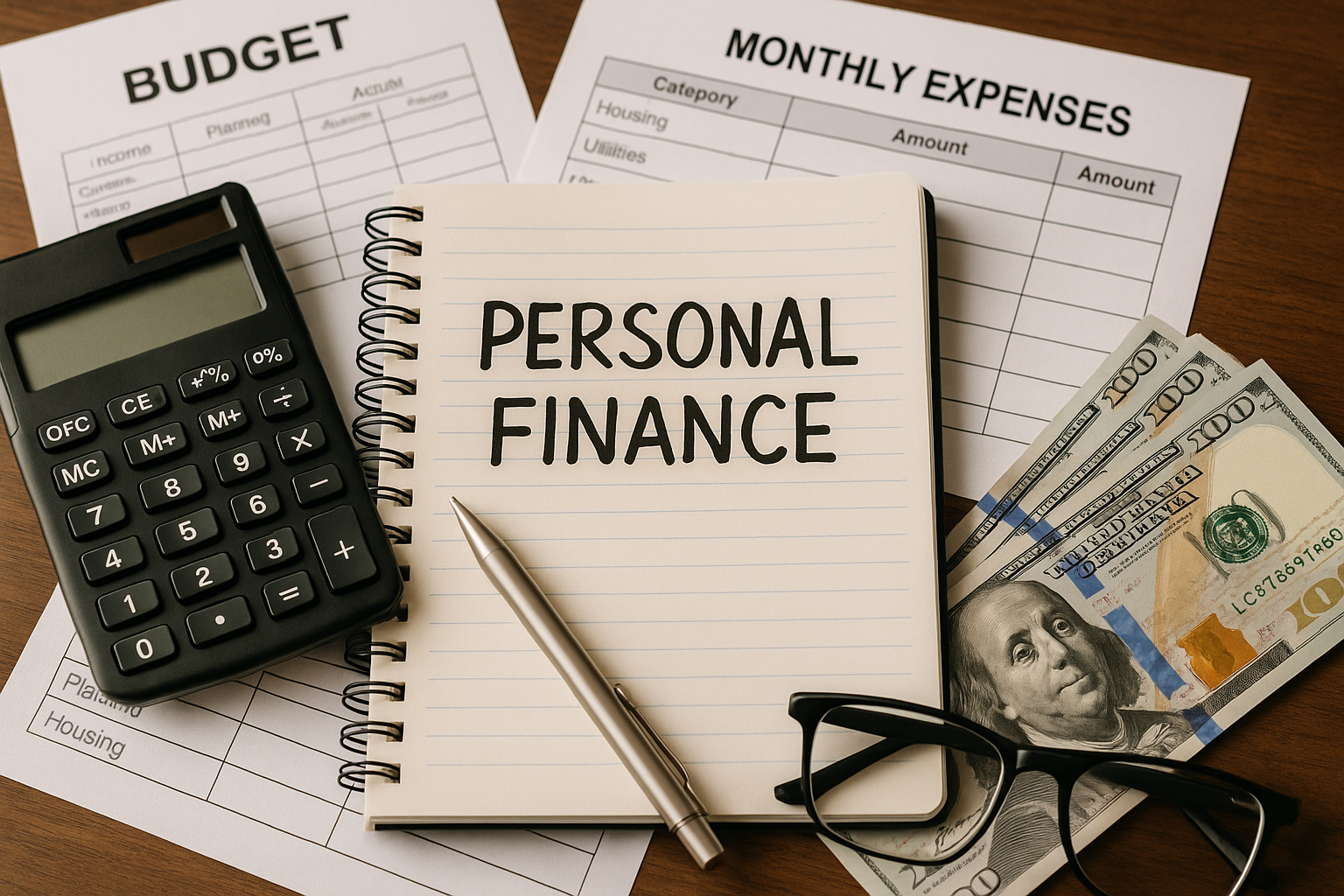Organizing personal finances may seem intimidating, especially if you’ve never done it before. But the truth is, managing money doesn’t require a finance degree — just a bit of planning, discipline, and the right mindset. In this guide, you’ll learn how to take control of your finances from the ground up.
Understand Where You Are Financially
Before you can make a plan, you need a clear picture of your current financial situation. That means knowing:
- How much you earn (after taxes)
- Your total monthly expenses
- Your debts
- Your savings and investments (if any)
Start by listing all your income sources, whether it’s a salary, freelance work, or side gigs. Then write down your expenses: rent, bills, groceries, transportation, subscriptions, entertainment, etc.
Create a Simple Financial Inventory
A great tool for this is a spreadsheet. Create columns for income, fixed expenses, variable expenses, debts, and savings. Be honest — this will be your financial mirror.
Set Clear and Realistic Financial Goals
Once you understand where you stand, it’s time to set some goals. These can be short-term, medium-term, or long-term, such as:
- Saving $1,000 in 3 months
- Paying off credit card debt within a year
- Building a 6-month emergency fund
- Investing for retirement
The more specific your goals, the easier they’ll be to track and achieve.
Build a Budget That Works for You
A budget is your financial roadmap. It tells your money where to go instead of wondering where it went. Start with a simple rule like the 50/30/20 rule:
- 50% for needs (rent, food, transportation)
- 30% for wants (leisure, hobbies, dining out)
- 20% for savings and debt repayment
Adjust this formula based on your reality, but always aim to include savings in your monthly plan.
Choose a Budgeting Method
There are several budgeting systems you can try:
- Envelope system: Allocate cash for categories and don’t spend more than that amount.
- Zero-based budget: Every dollar has a job — income minus expenses equals zero.
- Pay-yourself-first: Set aside savings as soon as you get paid, then budget the rest.
Eliminate and Control Debt
Debt is one of the biggest obstacles to financial freedom. If you’re in debt, tackle it with intention:
- List your debts by amount and interest rate.
- Choose a strategy: Avalanche method (highest interest first) or Snowball method (smallest balance first).
- Pay more than the minimum if possible.
- Avoid taking on new debt unless absolutely necessary.
Start Building an Emergency Fund
An emergency fund protects you from unexpected expenses like car repairs or medical bills. Aim for at least 3 to 6 months of living expenses. Keep this money in an easily accessible savings account — not in cash, but not in investments that could lose value quickly.
Even if you can only save a little at a time, start now. Small amounts add up.
Use Tools to Make It Easier
Technology can help you stay on track. Try using apps like:
- Mint: Budgeting and tracking
- YNAB (You Need a Budget): Great for zero-based budgeting
- EveryDollar: Simple interface, goal-focused
- Spendee or PocketGuard: Good for monitoring spending
Don’t forget to automate what you can — from bill payments to savings transfers.
Develop Smart Money Habits
Managing your finances isn’t just about numbers — it’s about behavior. Here are some habits to cultivate:
- Track your expenses daily or weekly
- Avoid impulsive purchases
- Delay gratification: wait 24 hours before buying non-essentials
- Review your budget monthly
- Celebrate small wins to stay motivated
Don’t Be Afraid to Learn More
Financial literacy is a journey. Read books, listen to podcasts, watch videos, and follow experts who teach about personal finance in simple terms. A few great starting points:
- “The Total Money Makeover” by Dave Ramsey
- “Your Money or Your Life” by Vicki Robin
- “I Will Teach You to Be Rich” by Ramit Sethi
The more you learn, the more confident and empowered you’ll feel managing your money.
Your New Financial Life Starts Today
You don’t need to be rich or a math genius to take control of your money. What you need is a willingness to be intentional and consistent. Organizing your finances from scratch is about creating a strong foundation for your future — one step at a time.
Start small, stay focused, and remember: every financial decision you make today shapes your life tomorrow.
